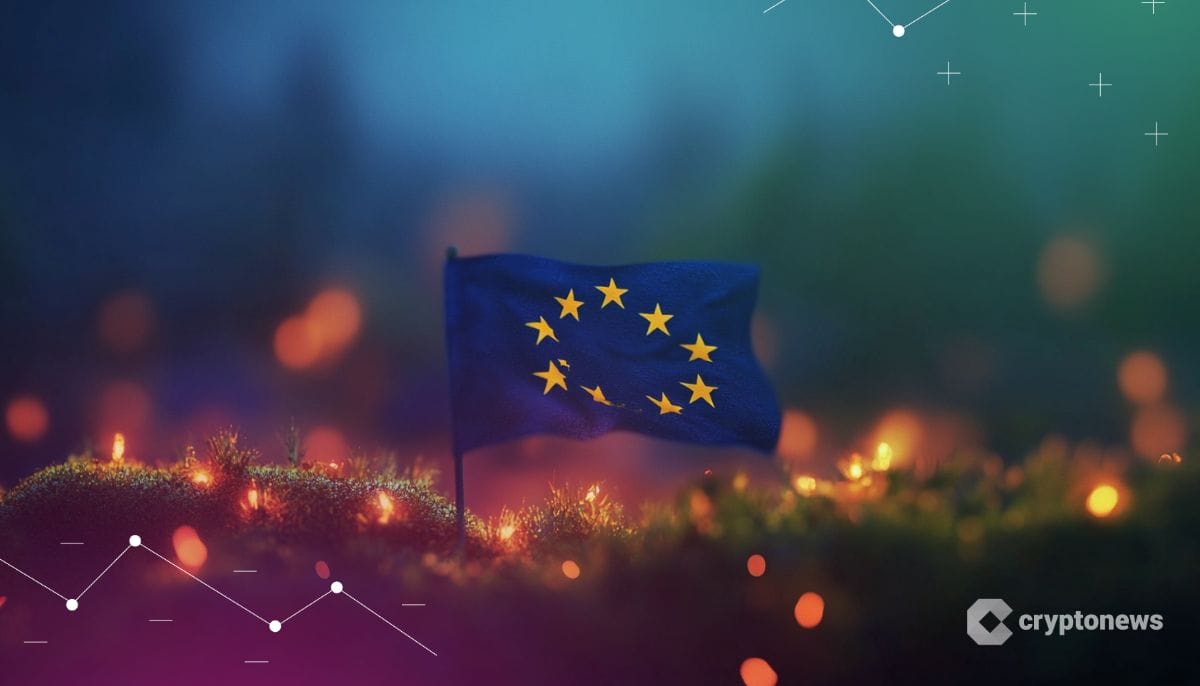Last updated:
 Why Trust Cryptonews
Why Trust Cryptonews
Ad Disclosure
We believe in full transparency with our readers. Some of our content includes affiliate links, and we may earn a commission through these partnerships. Read more

Boerse Stuttgart Digital Custody has become the first German crypto service provider to obtain the EU-wide license under the Markets in Crypto-Assets Regulation (MiCA).
According to the company’s press release shared with CryptoNews, this license, granted on Jan. 17 by Germany’s Federal Financial Supervisory Authority (BaFin), supports the firm’s goal of becoming a leading regulated infrastructure provider for banks, brokers, and asset managers.
“On this basis, we will further expand the offering of Boerse Stuttgart Digital with integrated solutions for financial institutions across Europe and thus consistently continue the internationalization and structural growth of our digital business,” said Matthias Voelkel, CEO of the Boerse Stuttgart Group.
Boerse Stuttgart Sees Explosive Growth in Crypto Trading Revenue
Boerse Stuttgart experienced a significant surge in revenue from its cryptocurrency services in 2024.
According to a Jan. 15 report by the financial newspaper Barron’s, citing AFP, Boerse Stuttgart’s crypto trading volumes tripled last year, contributing a substantial 25% to the company’s overall revenue. By the end of 2024, the exchange was holding €4.3 billion (around $4.4 billion) in crypto assets for its clients.
Bitcoin (BTC) remained the most traded cryptocurrency at Boerse Stuttgart Digital in 2024, accounting for roughly 50% of all crypto transactions on the platform.
MiCA Impacts the Stablecoin Market
The approval comes shortly after the implementation of the MiCA regulation on Dec. 30, 2024, which is the world’s first comprehensive regulatory framework for the crypto industry.
MiCA sets clear requirements for the registration and supervision of providers, promotes investor protection, and creates transparency. At the same time, it facilitates companies’ access to a harmonized European crypto market by replacing different national regulations.
MiCA has already led to a significant shake-up in the stablecoins sector.
Coinbase, a major US crypto exchange, delisted Tether (USDT) in mid-December due to compliance concerns with the EU’s MiCA regulations.
Despite Coinbase’s action, USDT continues to be traded on many exchanges within the EU, which are likely awaiting further guidance from European authorities on USDT’s compliance with the new regulation.
🇪🇺 Why Europe’s MiCA Raises the Barrier to Entry for Stablecoin Issuers
The Markets in Crypto Assets Regulation (MiCA), due to take effect this year, is the European Union’s comprehensive crypto law. #CryptoNews #EUhttps://t.co/NFgLsQQ7DU
— Cryptonews.com (@cryptonews) February 8, 2024
Will MiCA Stifle Innovation?
While MiCA is a significant step towards a harmonized European crypto market, concerns about regulatory overreach for retail investors persist,” Marina Markezic, co-founder of the European Crypto Initiative (EUCI), told CryptoNews in an interview.
“There is quite a lot of confusion,” she added, “especially considering the 27 member states that make up this trading bloc might interpret the regulations differently.”
Markezic highlighted potential challenges, including ambiguity regarding the scope of the regulation, particularly for decentralized finance (DeFi) and non-fungible tokens (NFTs). This uncertainty and increased scrutiny, according to Markezic, “could also lead to reduced innovation, as smaller projects and newer initiatives may struggle to meet these demands.”
Furthermore, Markezic anticipates a wave of mergers and acquisitions as the industry adapts to the new regulatory landscape.
“MiCA will accelerate the institutionalization and consolidation of the EU crypto market,” she said, “and spur a flurry of mergers and acquisitions between traditional finance and crypto-native firms, with some companies or specific products even “fading out.”


